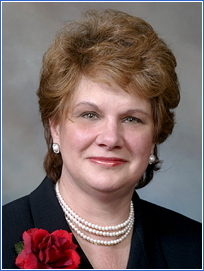Since the Common Core State Standards Initiative (CCSSI) has been fully implemented, I have received more complaints from constituents about the CCSSI than any other subject. Most of these complaints have been about math, with parents of elementary school students being the most vocal. I recently reread this 2012 article by high school math teacher Barry Garlick. The entire article is excellent, but I want to quote for you the section that I think zeroes in on the gist of our problem:
“As I’ve discussed elsewhere, the criticism of traditional math teaching is based largely on a mischaracterization of how it is/has been taught, and misrepresented as having failed thousands of students in math education despite evidence of its effectiveness in the 1940s, ’50s and ’60s. Reacting to this characterization of the traditional model, math reformers promote a teaching approach in which understanding and process dominate over content. In lower grades, mental math and number sense are emphasized before students are fluent with procedures and number facts. Procedural fluency is seldom achieved. In lieu of the standard methods for adding/subtracting, multiplying and dividing, in some programs students are taught strategies and alternative methods. Whole class and teacher-led explicit instruction (and even teacher-led discovery) has given way to what the education establishment believes is superior: students working in groups in a collaborative learning environment. Classrooms have become student-centered and inquiry-based. The grouping of students by ability has almost entirely disappeared in the lower grades—full inclusion has become the norm. Reformers dismiss the possibility that understanding and discovery can be achieved by students working on sets of math problems individually and that procedural fluency is a prerequisite to understanding. Much of the education establishment now believes it is the other way around; if students have the understanding, then the need to work many problems (which they term “drill and kill”) can be avoided.”
The de-emphasis on mastery of basic facts, skills and procedures has met with growing opposition, not only from parents but also from university mathematicians. At a recent conference on math education held in Winnipeg, math professor Stephen Wilson from Johns Hopkins University said, much to the consternation of the educationists on the panel, that “the way mathematicians learn is to learn how to do it first and then figure out how it works later.” This sentiment was also echoed in an article written by Keith Devlin (2006). Such opposition has had limited success, however, in turning the tide away from reform approaches.
Read more: Mathematics Education: Being Outwitted by Stupidity
